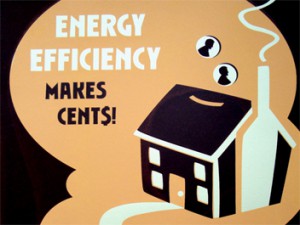Several thousand officials from 194 countries just gathered in Cancún, Mexico, for yet another global climate summit. Dissatisfied with the pace of climate diplomacy, many individuals are now wondering what they can do about climate change on their own.
For years now, climate activists from Al Gore to Leonardo DiCaprio have argued that individual actions like driving more economical cars and using more efficient light bulbs are a crucial element in the effort to address global warming. The United Nations’ climate panel and the International Energy Agency both echo this sentiment, insisting that higher energy efficiency could reduce energy consumption by up to 30 percent—making improved efficiency an effective remedy for climate change. But is this really true?
Here’s something to think about. Back in the early 1970s, the average American expended roughly 70 million British thermal units per year to heat, cool, and power his or her home. Since then, of course, we have made great strides in energy efficiency. As the Washington Post recently reported, dishwashers now use 45 percent less power than they did two decades ago, and refrigerators 51 percent less. So how much energy do Americans use in their homes today? On a per capita basis, the figure is roughly what it was 40 years ago: 70 million BTUs.
Read the entire article at Policy Innovations: The Paradox of Efficiency



